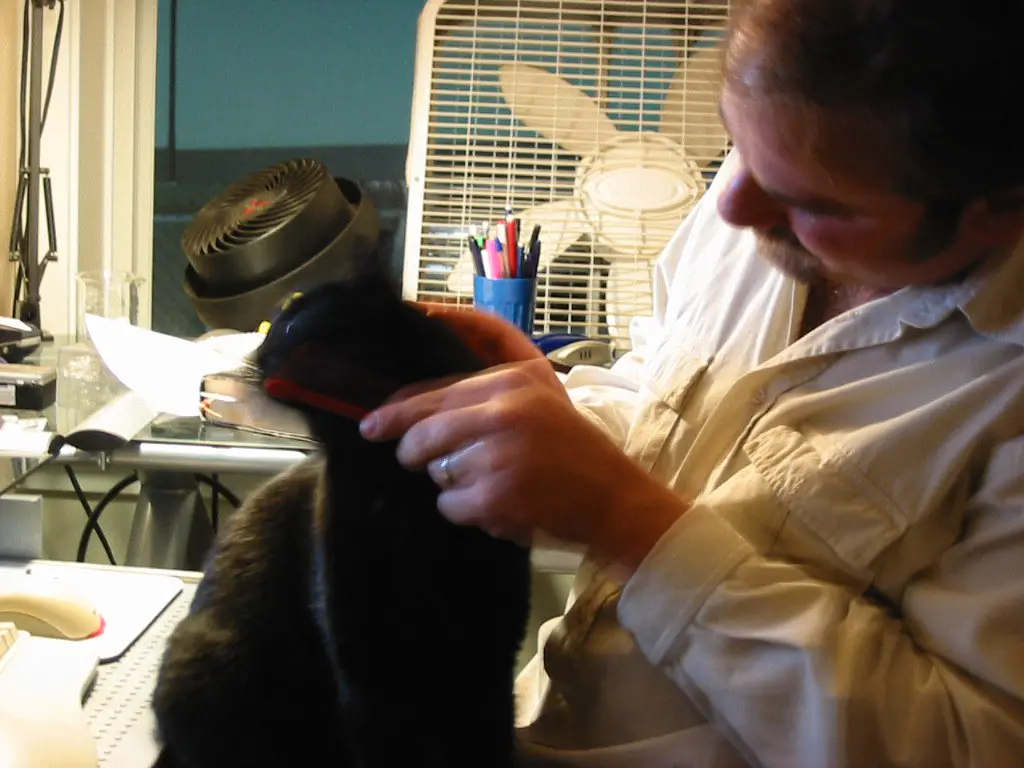How Often Should I Bathe My Cat? A Guide for Cat Owners
Cats are known for their grooming habits, but how often should you bathe them? Indoor cats, in particular, may not need as many baths as outdoor cats, but it’s still important to keep them clean. Additionally, many cat owners wonder about their cat’s sleeping habits, behavior, and emotions. Do they recognize their owner? Do they like sleeping with humans? What do they think when we kiss them? This article will answer these questions and more.
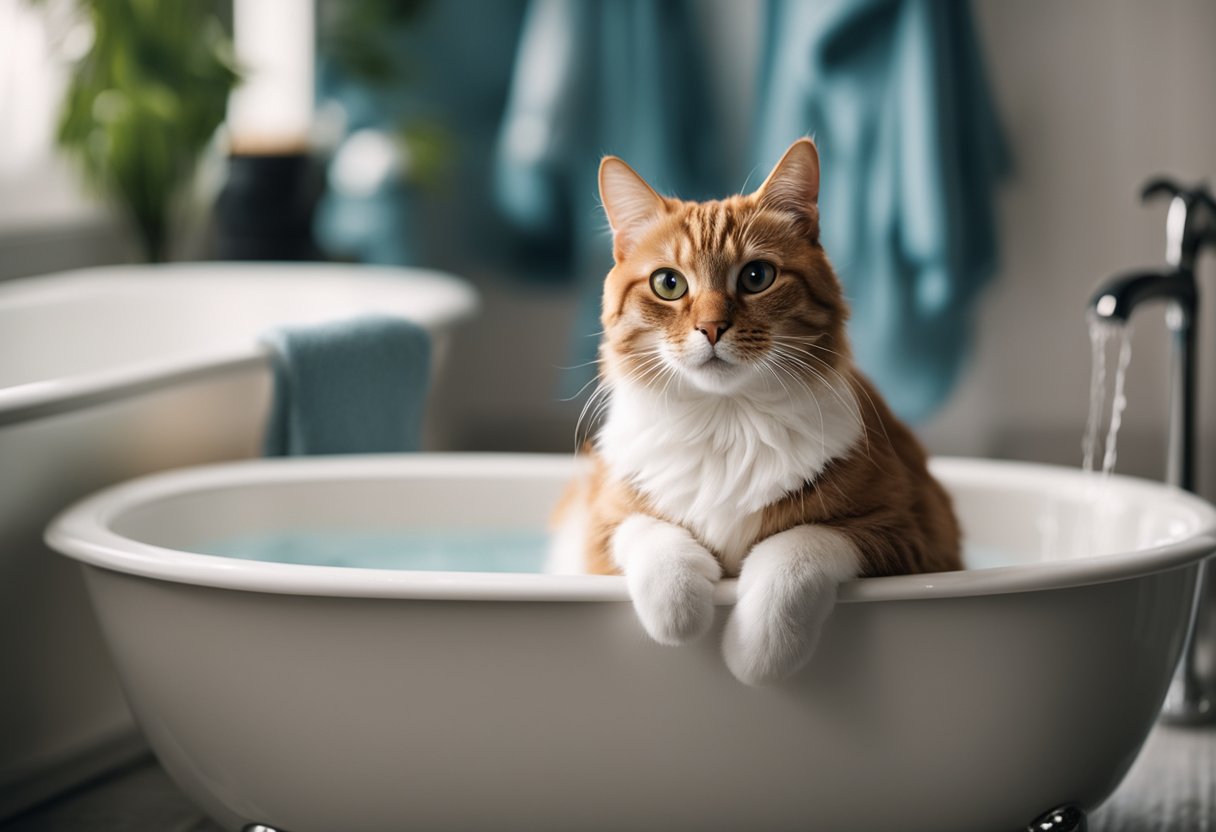
When it comes to cat hygiene, it’s important to keep their fur clean and free of mats. However, cats don’t need baths as often as dogs do. In fact, over-bathing can strip their skin of natural oils and cause skin irritation. Indoor cats may only need a bath every few months, while outdoor cats may need more frequent baths if they get into something dirty or smelly. It’s important to use a cat-specific shampoo and to make sure they are thoroughly rinsed and dried after the bath.
Understanding cat behavior is another important aspect of cat ownership. Cats are known for their independent nature, but they can also be affectionate with their owners. They may recognize their owner’s voice and scent, and some cats even like to sleep with their owners. However, it’s important to respect a cat’s boundaries and not force them to do anything they don’t want to do.
Key Takeaways
- Indoor cats may only need a bath every few months, while outdoor cats may need more frequent baths if they get into something dirty or smelly.
- Cats are independent by nature but can also be affectionate with their owners.
- It’s important to respect a cat’s boundaries and not force them to do anything they don’t want to do.
Cat Hygiene
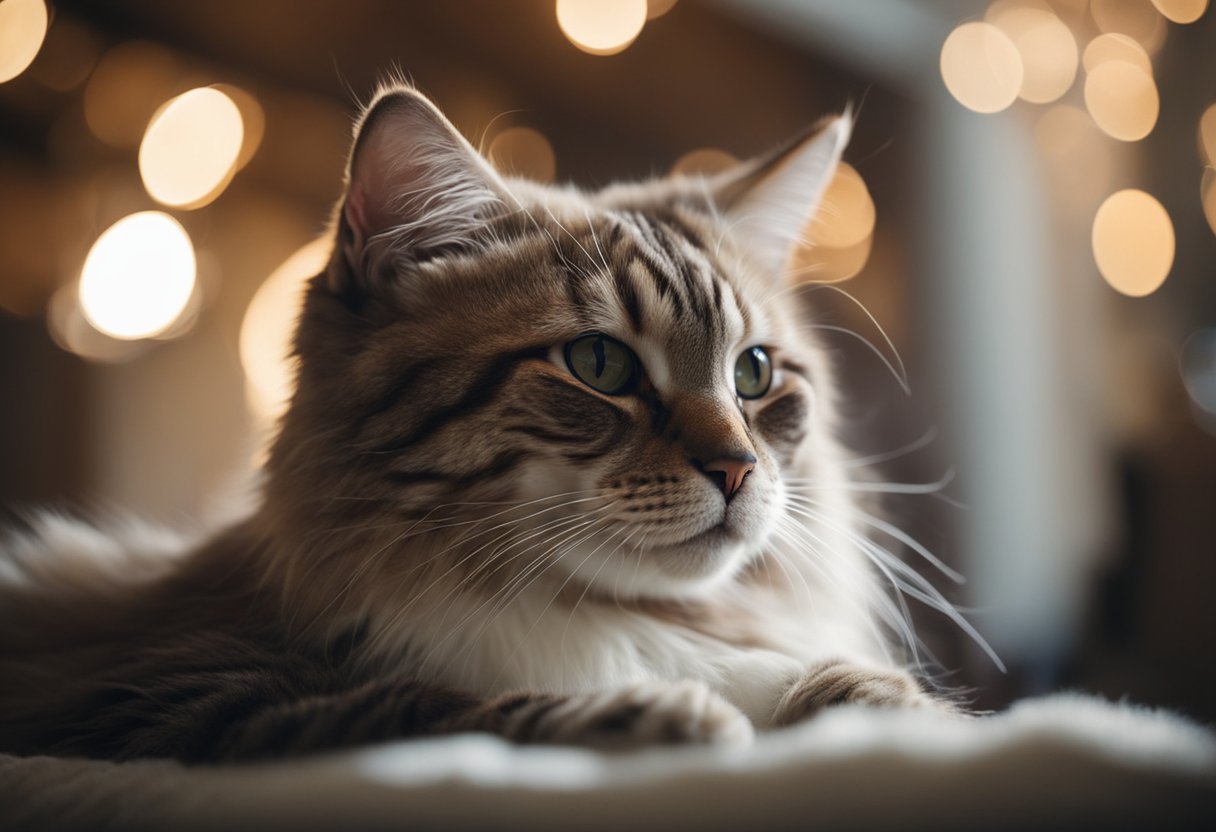
Cats are known for their impeccable grooming habits, but there may be times when a cat needs a bath. In this section, we will discuss how often to bathe a cat, indoor cat bathing needs, cleaning cat paws, and safe cleaning products for cats.
How Often to Bathe a Cat
The general rule of thumb is that cats need a maximum of one bath every few months, unless they get into something particularly dirty or smelly. According to a clinical associate professor at the Texas A&M College of Veterinary Medicine & Biomedical Sciences, Dr. Alison Diesel, “In general, cats do not need to be given a bath by their owners.”
Indoor Cat Bathing Needs
Indoor cats generally do not need to be bathed as often as outdoor cats. However, if an indoor cat gets into something particularly dirty or smelly, a bath may be necessary. It is important to note that cats do not enjoy being bathed, so it is important to make the experience as stress-free as possible.
Cleaning Cat Paws
Cats are meticulous groomers and often clean their paws themselves. However, if a cat has stepped in something dirty or sticky, their paws may need to be cleaned. This can be done by using a damp cloth or pet wipes. It is important to avoid using human cleaning products, as they can be harmful to cats.
Safe Cleaning Products for Cats
When it comes to bathing a cat, it is important to use safe cleaning products. There are many cat-specific shampoos and conditioners available on the market that are safe for cats. It is important to avoid using human shampoos and conditioners, as they can be harmful to cats. Additionally, it is important to read the labels of any cleaning products used on a cat’s paws to ensure they are safe for cats.
In conclusion, cats generally do not need to be bathed as often as dogs, but there may be times when a bath is necessary. It is important to make the experience as stress-free as possible for the cat and to use safe cleaning products.
Cat Grooming Behaviors
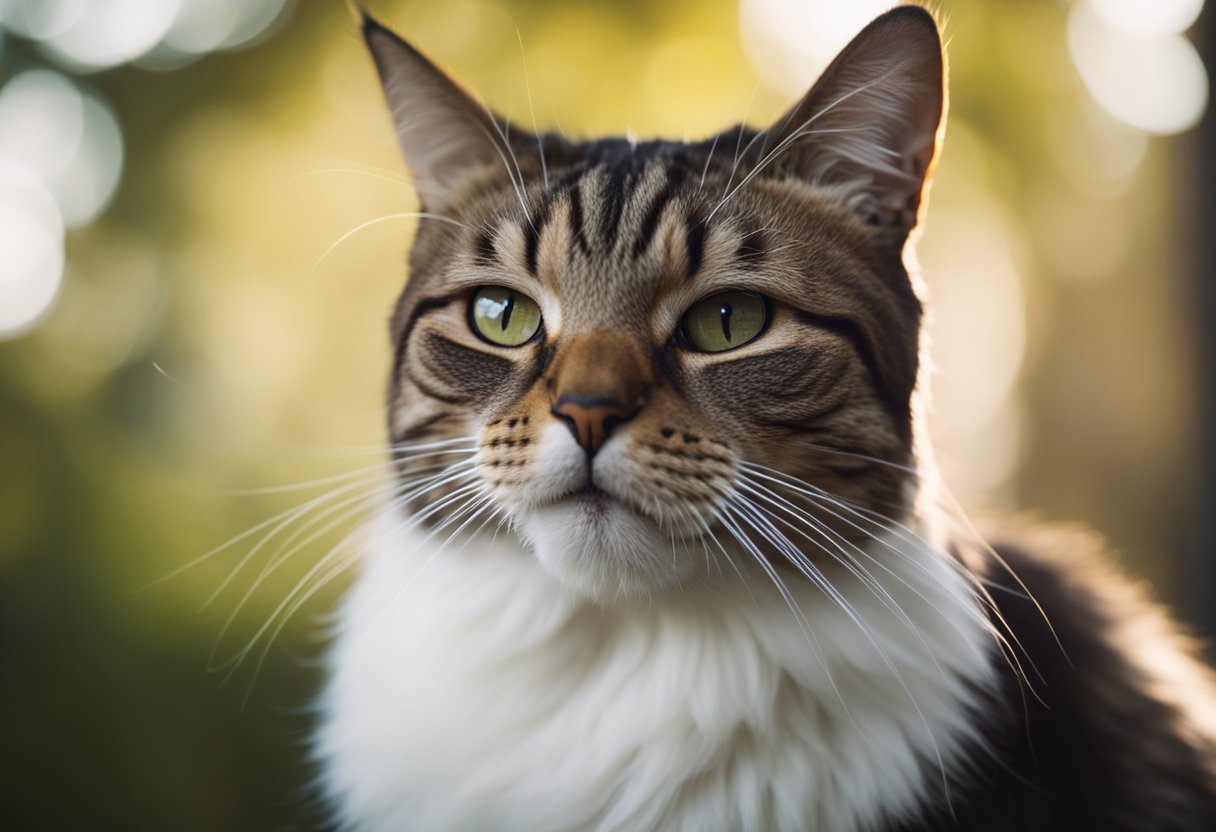
Cats are known for their self-grooming habits, but do they need baths? According to Catster, cats need a maximum of one bath every few months unless they get into something particularly dirty or smelly. Regular brushing is more important for cats with longer fur, as it helps prevent tangles from forming and keeps their coat clean.
Hours Cats Spend Licking Themselves
Cats are known for spending a lot of time grooming themselves. According to PetMD, cats spend an average of 2-4 hours per day grooming themselves. This behavior not only helps them stay clean but also helps regulate their body temperature and promotes relaxation.
Cat Nail Care
Cats’ nails need to be trimmed regularly to prevent them from becoming too long and causing discomfort or injury. According to VCA Hospitals, cats’ nails should be trimmed every 4-6 weeks. If you’re unsure how to trim your cat’s nails, consult with your veterinarian or a professional groomer.
Cats’ Self-Cleaning Habits
Cats are known for their self-cleaning habits, which involve licking themselves to remove dirt and debris. However, this behavior can lead to hairballs, especially in long-haired cats. According to WebMD, hairballs can be prevented by brushing your cat regularly and feeding them a diet high in fiber. In some cases, hairball remedies may be necessary if your cat is prone to hairballs.
Cat-Human Interaction
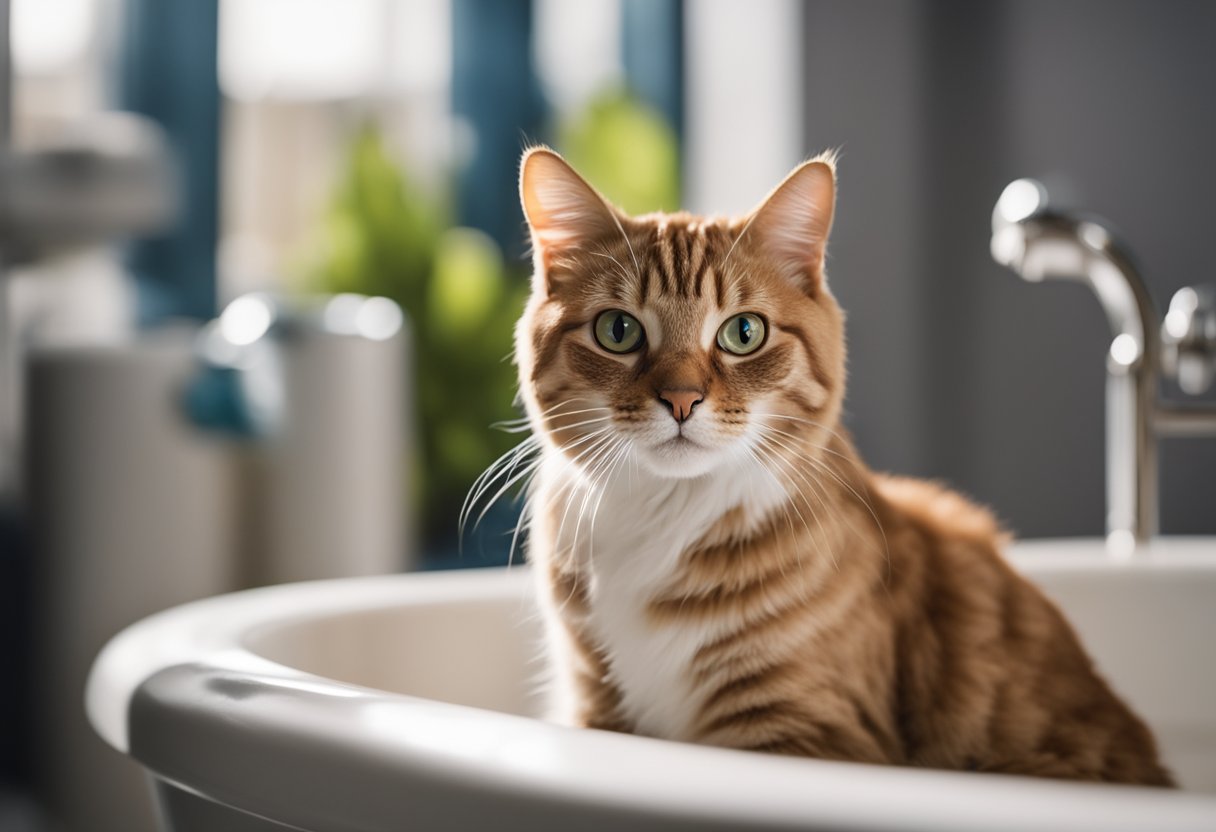
Cats are known for their independent nature, but they can also be affectionate and enjoy spending time with their owners. This section will explore various aspects of cat-human interaction.
Cats Recognizing Owners
Cats have a good memory and can recognize their owners by sight, sound, and smell. According to a study published in the journal Animal Cognition, cats can recall their owner’s voice even after being separated from them for a long time. However, it is important to note that cats may not always respond to their owner’s calls or commands, as they are known for their independent nature.
Cats Sleeping with Humans
Many cats enjoy sleeping with their owners, as it provides them with warmth and comfort. However, it is important to note that some cats prefer to sleep alone and may not appreciate being disturbed while they are sleeping. If a cat is sleeping with their owner and they appear uncomfortable or restless, it may be best to let them sleep alone.
Cats’ Perception of Human Affection
Cats can be affectionate towards their owners, but they may not always show it in the same way that dogs do. While dogs may wag their tails and jump up to greet their owners, cats may simply rub against their owner’s legs or purr when they are petted. It is important to understand and respect a cat’s individual personality and preferences when it comes to affection.
Respecting Cat’s Personal Space
Cats are known for their independent nature and may not always want to be held or petted. It is important to respect a cat’s personal space and allow them to approach their owner on their own terms. If a cat appears uncomfortable or agitated, it may be best to give them some space and allow them to calm down.
Cats’ Responses to Names
Cats can learn their names and respond to them, but they may not always choose to do so. According to a study published in the journal Behavioural Processes, cats are more likely to respond to their owner’s voice than to their name. However, with patience and training, it is possible to teach a cat to respond to their name.
Cats’ Reactions to Music
Cats have sensitive hearing and may be able to hear frequencies that humans cannot. While some cats may enjoy listening to music, others may find it stressful or overwhelming. It is important to observe a cat’s behavior and body language when playing music and adjust the volume or type of music accordingly.
Overall, cat-human interaction can be a rewarding and enjoyable experience for both cats and their owners. By understanding and respecting a cat’s individual personality and preferences, owners can build a strong bond with their feline companions.
Understanding Cat Behavior
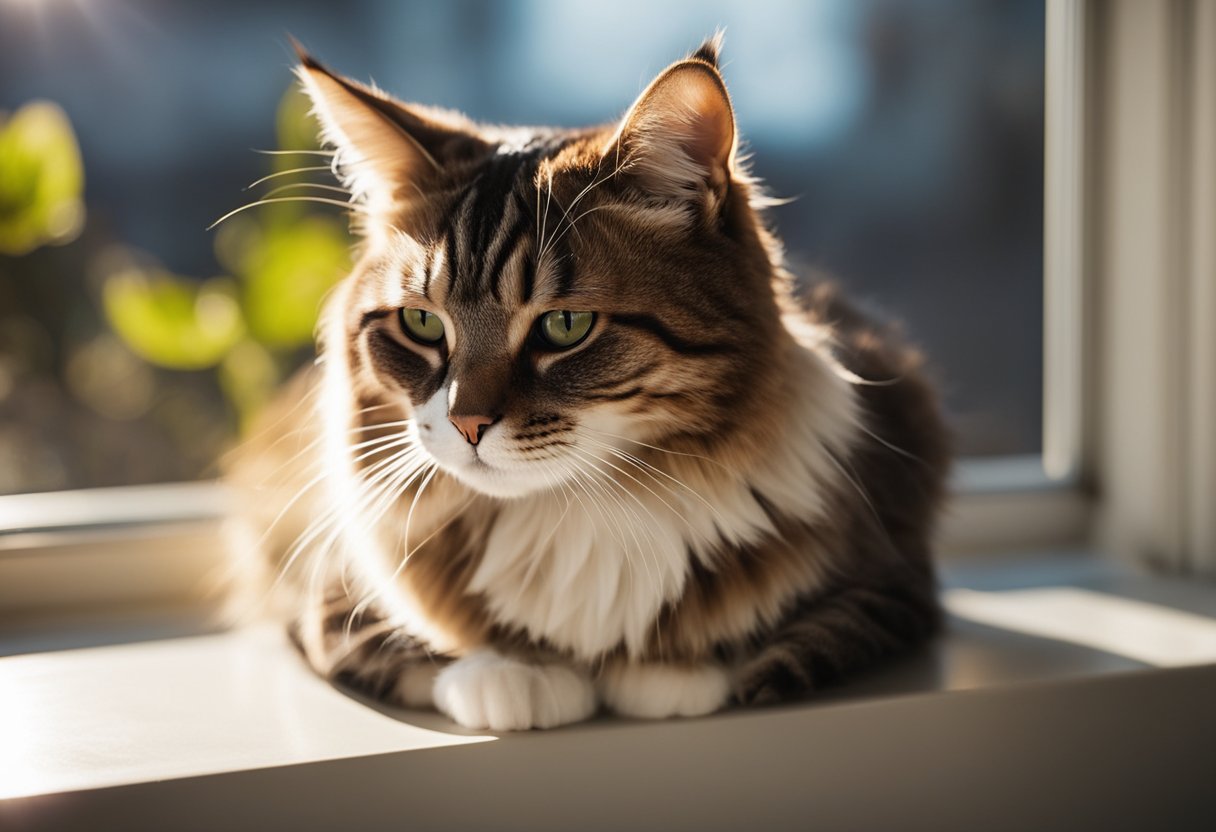
Cats are fascinating creatures with unique and complex behavior patterns. Understanding these behaviors can help cat owners better care for their feline friends and build stronger bonds with them. In this section, we will explore some common cat behaviors and what they mean.
Cats’ Sleeping Preferences
Cats are known for their love of sleep, and they have some interesting preferences when it comes to where and how they sleep. Most cats prefer to sleep in warm, cozy spots, such as on a sunny windowsill or curled up in a soft bed. They also tend to prefer sleeping in enclosed spaces, such as boxes or cat condos, as it makes them feel safe and secure.
Cats’ Social Attachment
Contrary to popular belief, cats are social animals and can form strong bonds with their owners and other cats. However, they are also independent creatures and may not always want to be cuddled or played with. It’s important to respect your cat’s boundaries and give them space when they need it.
Cats Following Owners
Cats are curious creatures and often like to follow their owners around the house. This behavior is a sign of affection and trust, as cats feel safe and secure around their owners. It’s important to note that some cats may follow their owners more than others, and it’s not always a sign of neediness or attention-seeking behavior.
Interpreting Cat Stares
Cats are known for their intense stares, which can sometimes be unsettling for their owners. However, these stares are usually a sign of affection or curiosity, rather than aggression or anger. It’s important to pay attention to your cat’s body language and other cues to understand what they’re trying to communicate.
Cats and Jealousy
While cats may not experience jealousy in the same way that humans do, they can still become territorial and possessive of their owners. This behavior is often triggered by changes in the household, such as the introduction of a new pet or a new family member. It’s important to give your cat plenty of attention and affection to help them feel secure and loved.
Cats’ Memory of Owners
Cats have a good memory and can remember their owners for years, even if they haven’t seen them in a long time. They also have a strong sense of smell, which helps them recognize familiar scents. This is why it’s important to establish a routine with your cat and spend quality time with them, as it helps build a strong bond and reinforces their memory of you.
Living with Cats
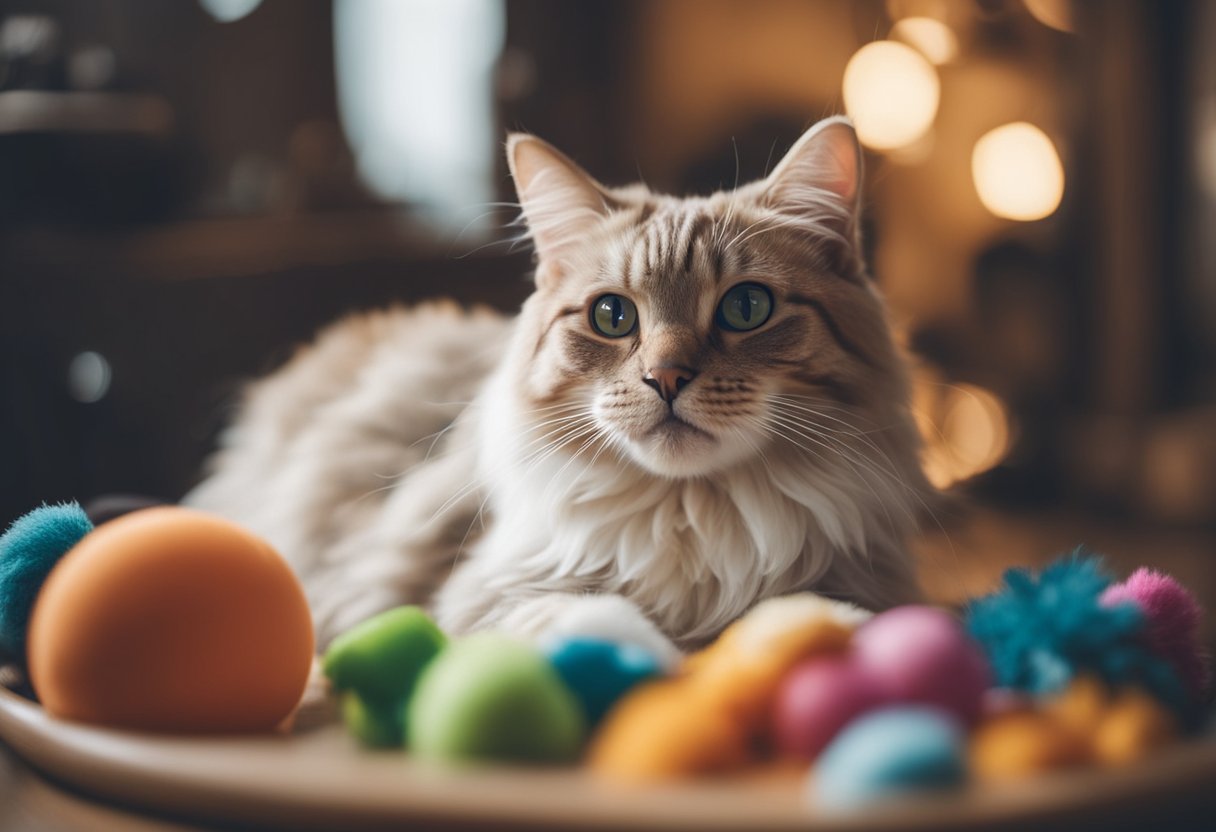
Cats are wonderful companions and can make great pets. They are independent creatures that require minimal care, but still, require attention and affection from their owners. In this section, we will discuss some important aspects of living with cats, including sharing a bed with your cat, leaving cats alone, cats’ litter box preferences, dressing up cats, and cats’ sense of embarrassment.
Sharing a Bed with Your Cat
Many cat owners enjoy sharing a bed with their feline friends. While it can be a comforting experience for both the cat and the owner, it is important to remember that cats are nocturnal creatures and may disrupt the owner’s sleep. If the owner is a light sleeper or has allergies, it may be best to discourage the cat from sleeping in the bed.
Leaving Cats Alone
Cats are independent creatures and can be left alone for short periods of time. However, it is important to ensure that they have enough food, water, and a clean litter box. Leaving cats alone for extended periods of time, such as more than 24 hours, is not recommended.
Cats’ Litter Box Preferences
Cats are very particular about their litter box preferences. They prefer clean litter boxes that are located in quiet and private areas. It is important to scoop the litter box daily and clean it thoroughly at least once a week.
Dressing Up Cats
While some cat owners may enjoy dressing up their furry friends, it is important to remember that cats are not naturally inclined to wear clothing. Dressing up cats can cause stress and discomfort, and may even lead to injury if the clothing is too tight or restrictive.
Cats’ Sense of Embarrassment
Cats are not capable of feeling embarrassment in the same way that humans do. However, they are sensitive creatures and can become stressed or anxious if they are placed in uncomfortable or unfamiliar situations. It is important to be mindful of a cat’s body language and behavior to ensure that they are comfortable and happy.
Overall, living with cats can be a rewarding and enjoyable experience. By understanding their needs and preferences, owners can create a comfortable and happy home for their feline friends.
Cat Emotions and Cognition
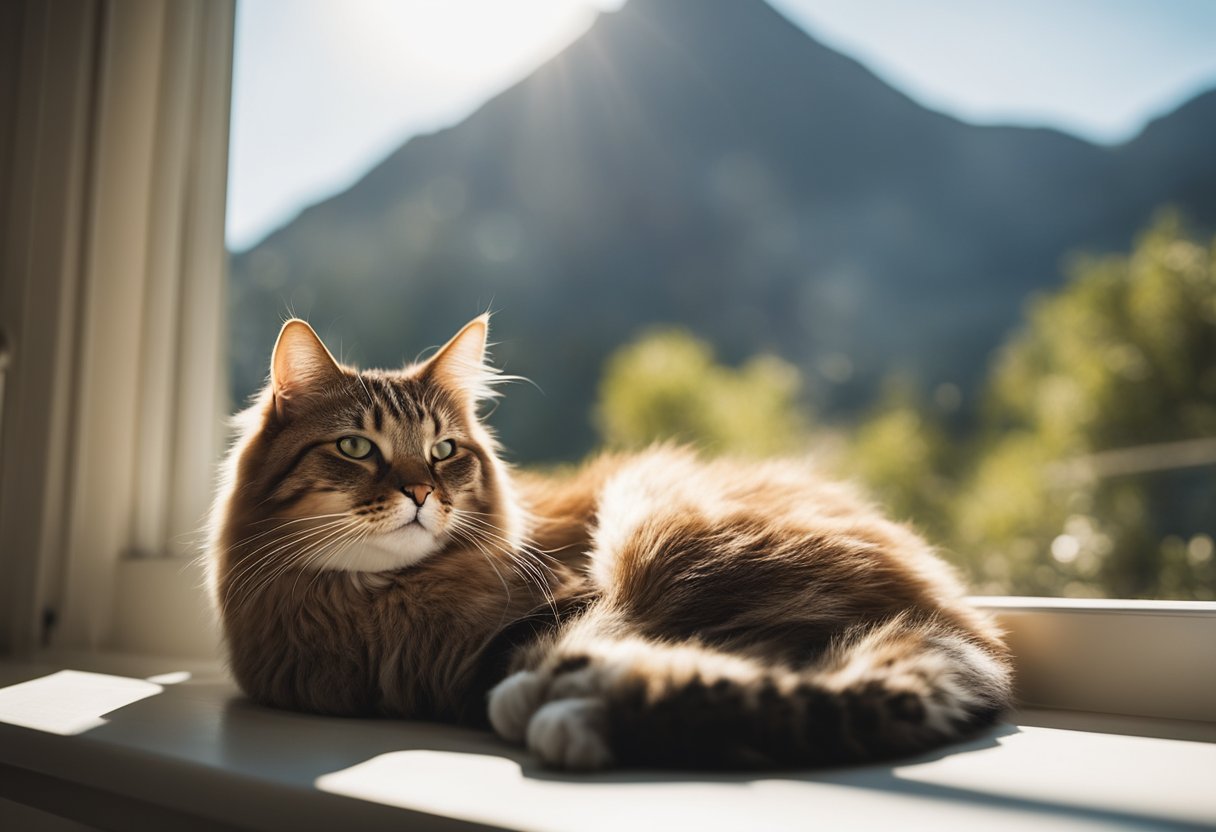
Do Cats Laugh
While it is difficult to determine whether cats laugh or not, they do have a sense of humor and enjoy playfulness. Cats often exhibit playful behaviors such as chasing toys, pouncing on objects, and playing hide and seek. These behaviors are often accompanied by vocalizations, such as chirps, meows, and purrs, which may indicate enjoyment.
Cats’ Recognition of Human Faces
Cats are able to recognize human faces, but their recognition abilities are not as advanced as those of dogs or humans. A study conducted by researchers at the University of Tokyo found that cats were able to distinguish between the faces of their owners and those of strangers. However, cats did not show a preference for their owners’ faces over those of strangers.
Cats’ Dream Content
Like humans, cats experience REM (rapid eye movement) sleep, which is associated with dreaming. It is believed that cats dream about activities that they engage in during their waking hours, such as hunting, playing, and exploring. Cats may also dream about interactions with their owners and other cats.
Cats’ Emotional Bonds
Cats are capable of forming strong emotional bonds with their owners and other cats. They are social animals and enjoy spending time with their human companions. Cats often show affection towards their owners through behaviors such as head-butting, rubbing against their legs, and purring. However, cats are also independent animals and may not always seek out human attention. It is important to respect a cat’s boundaries and allow them to come to you on their own terms.
In conclusion, cats have complex emotional and cognitive abilities. While they may not exhibit laughter in the same way that humans do, they do have a sense of humor and enjoy playful interactions. Cats are also capable of recognizing human faces, dreaming, and forming strong emotional bonds with their owners and other cats.
Cat Health and Safety
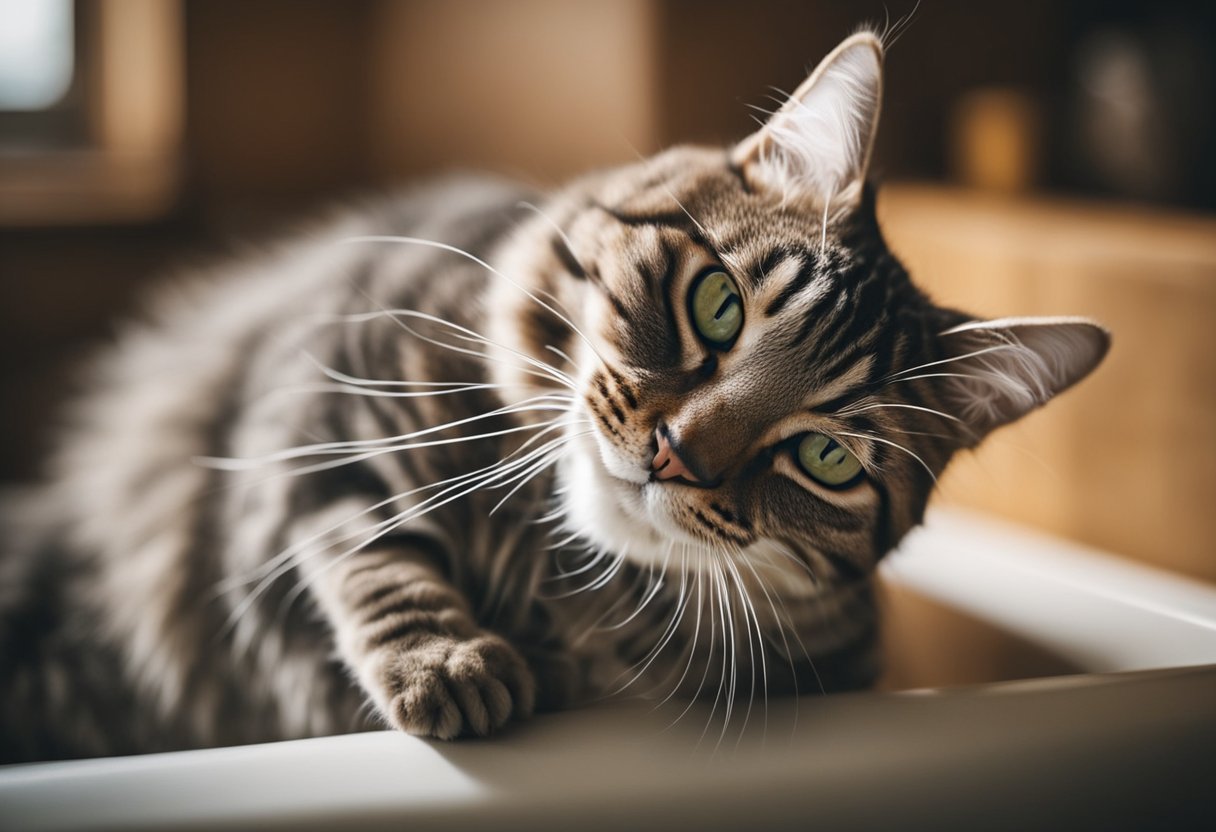
Cat Paw Health
Cats use their paws for a variety of activities such as walking, running, scratching, and grooming. Therefore, it is important to keep their paws healthy and clean. Regularly trimming their nails can prevent them from getting too long and causing discomfort or injury. It is recommended to use proper nail clippers designed for cats and avoid cutting the quick, which is a blood vessel that runs through the nail. Additionally, inspecting their paws for any signs of injury, swelling, or infection can prevent further complications.
Cat Dietary Safety
Feeding cats a well-balanced diet is crucial for their overall health and longevity. It is important to avoid feeding them human food that can be toxic or harmful to their digestive system. Some common foods to avoid include chocolate, onions, garlic, grapes, and raisins. Additionally, it is recommended to feed them high-quality cat food that meets their nutritional needs. Consult with a veterinarian to determine the appropriate diet for your cat based on their age, weight, and health status.
Vaseline and Cats
While Vaseline may be safe for human use, it is not recommended for cats. Ingesting Vaseline can cause gastrointestinal upset and potentially lead to aspiration pneumonia if the cat inhales the product. Additionally, applying Vaseline to a cat’s fur can potentially cause skin irritation or blockage of hair follicles. It is best to avoid using Vaseline on cats and consult with a veterinarian for safe alternatives.
Olive Oil for Cats
Olive oil is safe for cats in small quantities and can potentially provide health benefits such as improving their coat and aiding in digestion. However, it is important to consult with a veterinarian before adding olive oil to their diet as it can also lead to gastrointestinal upset if consumed in excess. Additionally, it is important to avoid using olive oil as a substitute for veterinary care if a cat is experiencing digestive issues or other health concerns.
Overall, maintaining a cat’s health and safety requires proper care and attention. Regular check-ups with a veterinarian, providing a well-balanced diet, and keeping their environment clean and safe can prevent potential health issues and ensure a happy and healthy life for your feline companion.
Frequently Asked Questions
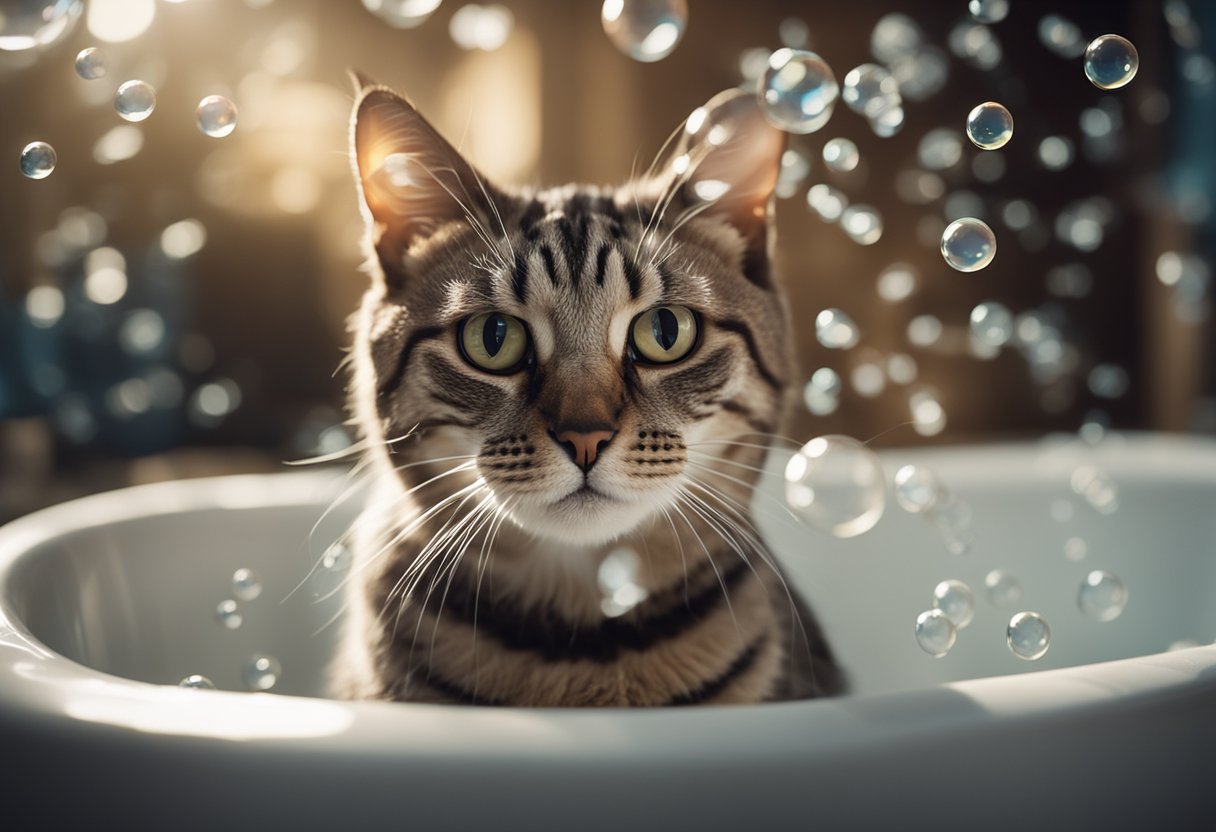
Do indoor cats require regular bathing?
Indoor cats are generally very clean animals and do not require regular bathing. They are capable of grooming themselves and keeping their fur clean and healthy. However, there are some situations where a bath may be necessary, such as if the cat gets into something particularly dirty or smelly, or if they have a medical condition that requires regular bathing.
What is the recommended frequency for bathing my cat?
The general rule of thumb is that cats need a maximum of one bath every few months (or even less frequently) unless they get into something particularly dirty or smelly Catster. Bathing your cat too often can strip their skin and coat of natural oils, which can lead to dryness and irritation.
How can I safely bathe my cat that despises water?
Cats are not naturally fond of water, so it is important to make the bathing experience as stress-free as possible. Before bathing, it is a good idea to brush your cat’s coat to remove any tangles or mats. You can also place a towel or non-slip mat in the bottom of the sink or tub to provide a more secure footing for your cat. Use a cat-specific shampoo and lukewarm water to wet your cat’s coat, avoiding their face and ears. Rinse thoroughly and dry your cat with a towel or hair dryer on a low heat setting FirstVet.
Is there an ideal time of day to give my cat a bath?
There is no ideal time of day to give your cat a bath, but it is best to choose a time when your cat is relaxed and calm. Avoid bathing your cat when they are hungry, anxious, or playful, as this can make the experience more stressful for both you and your cat.
Are there any risks associated with bathing cats?
Bathing cats can be risky if not done properly. Cats can become stressed and anxious during the bathing process, which can lead to scratching, biting, and other forms of aggression. Additionally, if water or shampoo gets into your cat’s ears, it can lead to infections. It is important to use cat-specific shampoo and to avoid getting water and shampoo in your cat’s face and ears.
How can I tell if my cat needs a bath?
Most cats do not need regular baths, but there are some signs that may indicate that your cat needs a bath. If your cat’s fur is greasy or matted, or if they have a strong odor, it may be time for a bath. However, it is important to remember that cats are naturally clean animals and do not require bathing as frequently as humans do. If you are unsure whether your cat needs a bath, consult with your veterinarian.
People also ask
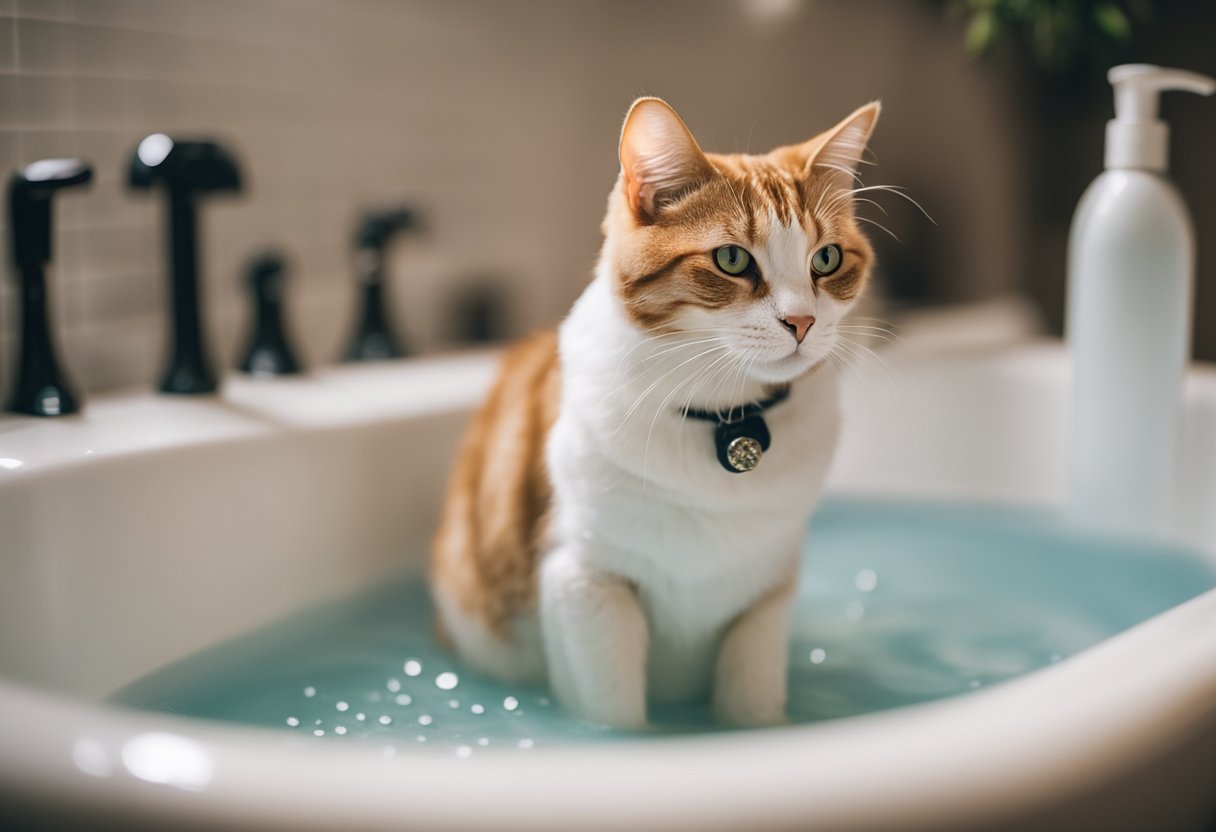
How often should I bathe my cat?
Cats are generally self-sufficient when it comes to grooming themselves. They spend a significant amount of time grooming themselves, so they usually don’t need to be bathed regularly. According to Catster, cats need a maximum of one bath every few months, or even less frequently, unless they get into something particularly dirty or smelly. Bathing your cat too often can strip their skin and coat of natural oils, which can lead to skin irritation and dryness.
Do indoor cats need baths?
Indoor cats generally don’t need to be bathed as they are not exposed to outdoor elements that can make them dirty or smelly. However, there may be instances where giving your indoor cat a bath is necessary, such as if they get into something particularly dirty or smelly. According to DorkyCats, it is not cruel to bathe a cat if it is not done often. However, cleaning them every day is unnecessary, and it can create unnecessary stress in your cat.
How many hours a day do cats lick themselves?
Cats are known for their grooming habits and can spend up to 50% of their day grooming themselves. According to PetMD, cats have a barbed tongue that helps them remove dirt and loose fur from their coat. They also lick themselves to cool down, stimulate blood flow, and remove odors.
Should a cat sleep on your bed?
Whether or not a cat should sleep on your bed is a personal preference. Some people enjoy the companionship of their cats and find it comforting to have them sleep on the bed, while others prefer to keep their cats off the bed. However, it is important to note that cats can carry allergens and parasites that can be transferred to humans, so it is important to keep your bedding clean and wash it regularly if your cat sleeps on your bed.
Do cats recognize their owner?
Cats can recognize their owners through their scent, voice, and appearance. According to Science Alert, a study found that cats can distinguish their owners’ voices from strangers’ voices and respond differently to each. They also respond positively to their owners’ scent and are more likely to approach them than strangers.
Do cats like sleeping with humans?
Some cats enjoy sleeping with their owners, while others prefer to sleep alone. It depends on the individual cat’s personality and preferences. According to PetMD, cats may enjoy sleeping with humans because it provides warmth and comfort, and it allows them to feel safe and secure.
Do cats know when we go to bed?
Cats are observant animals and can pick up on their owners’ routines and habits. They may recognize when their owners go to bed based on their behavior, such as turning off the lights or settling down in bed. However, it is unclear if cats have a concept of time or if they understand the purpose of sleep.
What do cats think when we kiss them?
It is unclear what cats think when their owners kiss them, as cats do not express their thoughts and feelings in the same way humans do. However, some cats may enjoy being kissed and see it as a form of affection, while others may find it uncomfortable or stressful. It is important to pay attention to your cat’s body language and respect their boundaries.
Do cats like being touched when they sleep?
Whether or not cats like being touched when they sleep depends on the individual cat’s personality and preferences. Some cats may enjoy being touched and find it comforting, while others may prefer to sleep undisturbed. It is important to pay attention to your cat’s body language and respect their boundaries.
Do cats know their names?
Cats can learn to recognize their names through repetition and positive reinforcement. According to Science Alert, a study found that cats can distinguish their names from other words and respond to them, even if they choose to ignore them.
Do cats enjoy music?
Cats have different preferences when it comes to music, just like humans do. Some cats may enjoy certain types of music, while others may not be interested. According to [PetMD](https://www.petmd.com/cat/behavior/do-cats-enjoy
